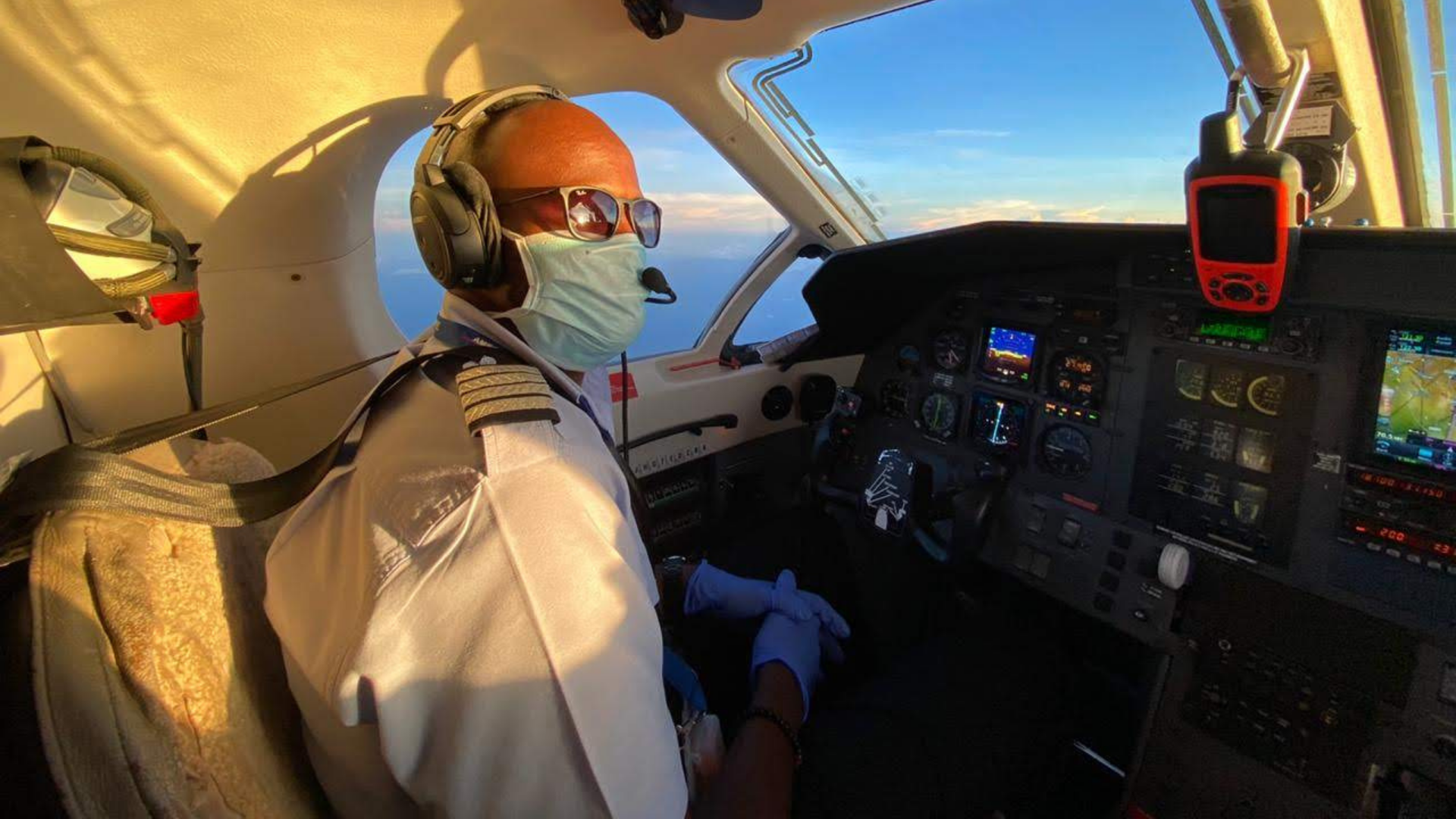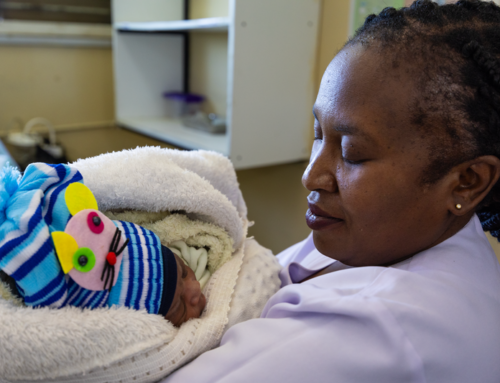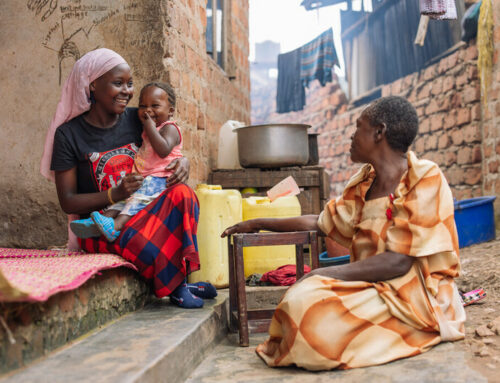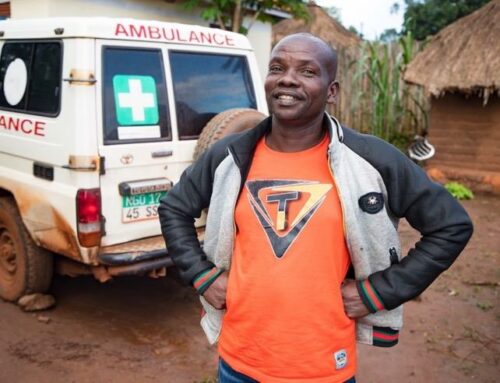Staff Perspective: Eric Njoroge Kabuba, Amref Flying Doctors Pilot
Eric Njoroge Kabuba got a call late one evening, not long after confirmed COVID-19 cases started to be reported in Kenya. He was asked to pilot a flight to Mandera County in the far northeastern part of the country, near the borders with Somalia and Ethiopia. This flight would be a little different than the usual ones the 29-year-old pilot does with Amref Flying Doctors.
Mandera County had two known confirmed cases of COVID-19. But it didn’t have any ventilators to treat patients, and frontline health workers had little personal protective equipment, such as masks, gowns, and gloves, or sanitizer. There was no time to waste, so Amref Flying Doctors was called in to deliver these desperately needed items as quickly as possible. Nairobi to Mandera County takes up to two days to drive; flight time, though, is just over two hours.
When they landed, Eric, the flight crew, and county government staff unloaded the ventilator and the boxes of sanitizer and personal protective equipment. Then, they carefully loaded 33 blood samples from patients suspected of having COVID-19 into the Pilatus PC12 plane. Amref Flying Doctors was delivering the blood samples to a lab in Nairobi so Mandera County health officials could get the results quickly.
“Flying the blood samples to Nairobi was definitely a unique experience for me,” says Eric. “We had to take extra precautions to make sure they were packaged properly, and we as flight crew were not exposing ourselves to anything.”
The blood samples were analyzed the following day, and four were confirmed to be positive for COVID-19. Mandera County was notified right away, enabling health workers to follow up with treatment and contact tracing.
Although Eric has had a lot of experience as an Amref Flying Doctors pilot, having worked with us full-time since 2017, he says this trip to Mandera County in the early days of the COVID-19 pandemic in Kenya was humbling. “Knowing that I had a part to play in the whole pandemic, making sure that we got help to people and we were able to change the lives of an entire County, considering how remote it is. Knowing the impact we had and that the two patients already confirmed with COVID-19 were able to get help with the ventilator. Knowing that I’ve been able to help someone out there and their family. It’s a nice feeling being part of that.”
Despite the risks he faces, Eric is committed to doing his part during the COVID-19 pandemic. And he’s staying positive as Kenya faces this new challenge. “I am thankful for our donors who believe in the important work we do. The Kenyan government is doing their best, but together we can save a lot of lives.”
Utilizing the Amref Flying Doctors for needs such as this is just one example of how we are adapting our activities to the ever-changing context of the last year and a half. In Uganda, where we are delivering eLearning programs for midwives and nurses, we introduced new modules on dealing with a pandemic. In Tanzania, when schools were closed, and we weren’t able to deliver our training and messages around how young people can stay safe and healthy, we delivered them through community groups, social media, and radio instead. In Ethiopia, the youth advocates we work with are campaigning on the streets of Addis Ababa, using loudspeakers to raise awareness of COVID-19 and the heightened risk of gender-based violence under lockdown and beyond. These are just a few examples of how we altered over 200 programs to adapt to the COVID-19 pandemic.





